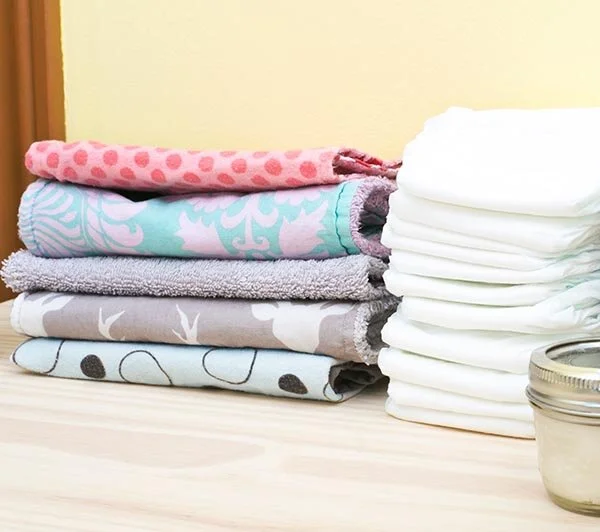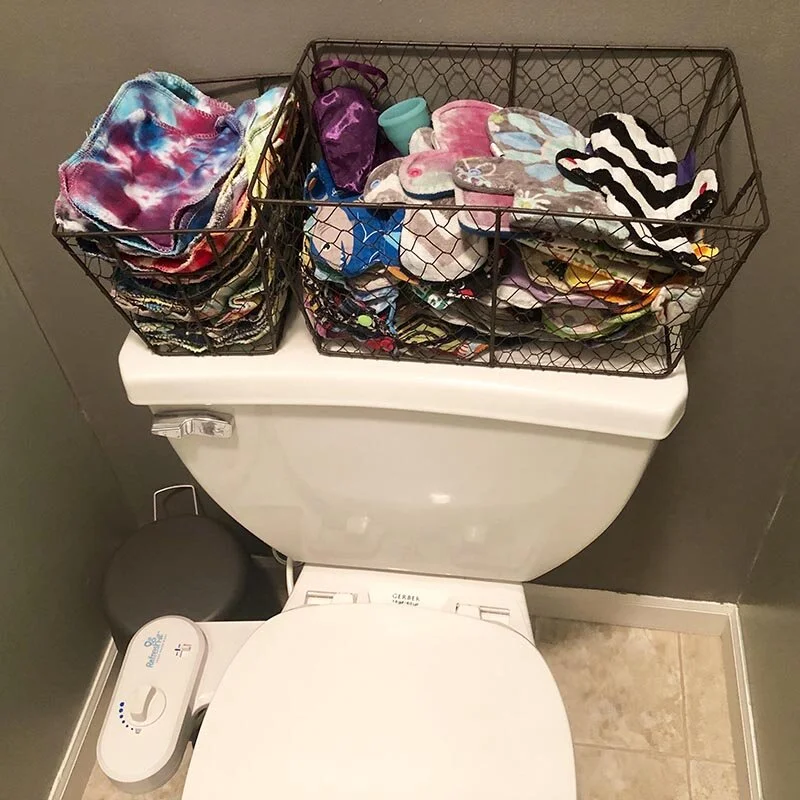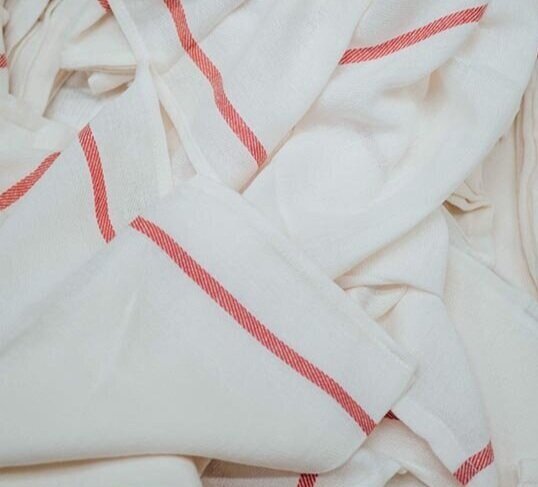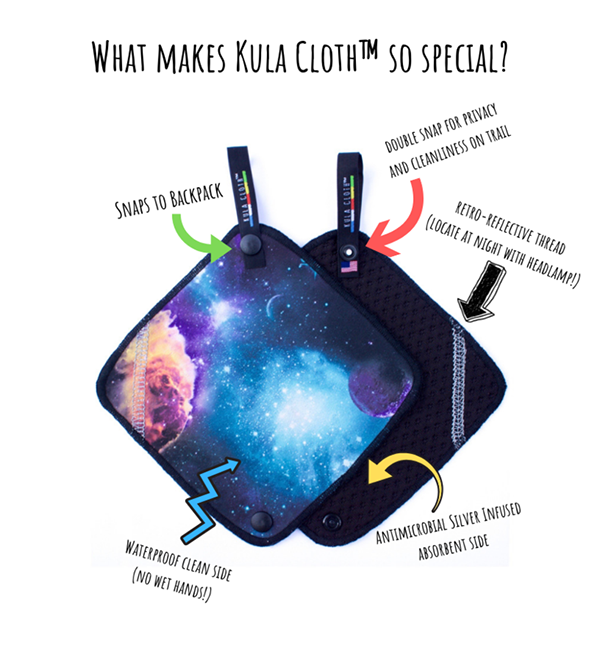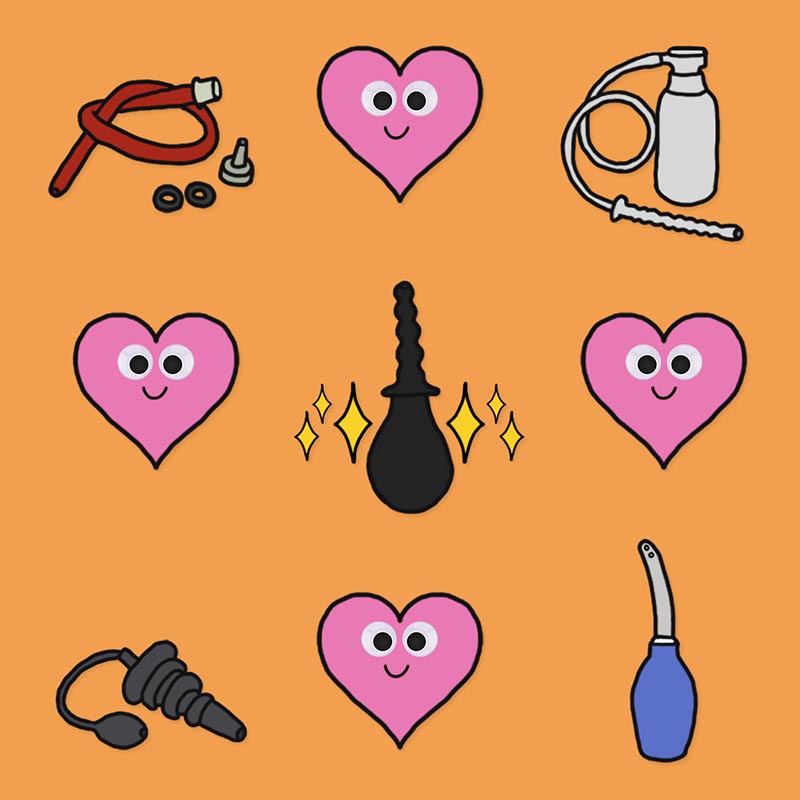Giving Up Toilet Paper For “Family Cloth”
Reusable pieces of fabric are one solution to coronavirus-fueled toilet paper shortages. Just remember not to flush.
By Jessie Schiewe
Toilet paper, that seemingly endless stuff that you used to pull from the roll with nary a second thought, is now a prized commodity thanks to coronavirus.
It’s not just leaving gaping holes of nothingness on store shelves, it’s being hoarded, sold on the black market, fought over, and used to lure business.
The good news is that our toilet paper anxieties are unfounded. The world does have enough toilet paper to serve all of our needs, even in times of crisis like now.
The reason we’re seeing empty shelves is because workers can only distribute and restock supplies so fast.
Which is to say, if there’s no toilet paper the next time you go to the store, it’s probably just bad timing on your part. More will come.
But amidst all this panic and fear, some have used these T.P. shortages as an opportunity to shed light on another way to keep our butts clean after going to the bathroom.
A growing number of people use reusable toilet paper made out of strips of fabric or tiny towels.
They’re called “family cloth.”
“Excuse me, but did you just say REUSABLE TOILET PAPER? Yes. yes, I did,” one woman recently wrote on Instagram beneath a photo of hand holding a clump of blue fabric.
“I have kept this a secret for a long time. I’ll admit that I was afraid to share this publicly, but with people freaking out over a toilet paper shortage (seriously, why is this even a thing?) a few friends have encouraged me to share this, so here it is.”
She’s not the only one. In the last five years, the concept of family cloth has really started to catch on, inspiring more than a few eco-conscious people to make the switch.
Many users sew their own, but you can also find reusable towels and other washable fabric swatches at stores.
One family cloth user shared a photograph of her household’s stash, stacked neatly inside of wire baskets atop her toilet, on Reddit in August 2019.
“My family has been paper-free in the bathroom for four years!” she wrote in the post.
Like many others who use family cloths, she explained that she also uses a bidet, which helps to further clean your behind before you wipe.
“You’re really just drying yourself off since you already rinsed everything with the bidet.”
Her post attracted more than 200 comments — most from people who found the concept intriguing, but some from people who were already using the recyclable toilet paper alternative.
“Some people will think it's going too far, but some people will think that about anything! I don't think it's going too far, we do it in our home, and we love it!” another Redditor wrote.
Those who use family cloth tend to incorporate fabrics into their other sanitary care needs, too. Cloth diapers are common and, for a few people, they were the gateway that got them interested in the “idea” of switching to reusable toilet paper in the first place.
Some women also use cloth menstrual pads when they’re on their periods — a practice that is slowly becoming more mainstream, to the point where you can now find them on Amazon.
Not that it’s a new concept by any means. It’s how women dealt with their monthly visits from “Aunt Flo” long before disposable pads.
“My Boomer mom told me that before they invented throwaway period pads (in the ‘70s or so in France, and at first only expensive items in pharmacies), they had to use squares of specially woven cotton, the ones they used as diapers, before paper diapers were a thing,” one person shared in the comments.
Nowadays, there are vastly more options when it comes to materials with which to construct family cloth. Lots of people, in keeping with the zero waist mentality, use leftover fabric from sewing projects or cut apart old blankets.
Even tea towels can be used as “family cloth.”
“I used flannel receiving blankets and scraps of flannel from sewing pajama pants for my kids,” the Redditor who shared the photo of her family cloth stash atop her toilet wrote.
Old tee-shirts also work, as do those $0.79 Ikea dish towels and even microfiber screen-cleaning cloths.
Some fabrics are better for the job than others, though. Soft flannel reportedly feels primo on the bum. Others said they make family cloth using cotton or blends containing spandex.
Just don’t make the mistake of choosing polyester. It’s too slippery, and, as one Redditor described it, “basically useless.”
Kula Cloth is a Washington-based company that makes all-purpose towelettes, or, as they call them “next-level pee cloths” that they only recommend using after going number 1.
In addition to having snap closures so you can attach them to things (like backpacks, fanny packs, etc.), the cloths are waterproof, absorbent, and antimicrobial.
Given the current coronavirus pandemic, Kula Cloth’s stocks are lower than normal, although you can still find a few available on their website.
They generally go for about $20 each, but the company is now “offering sliding scale pricing discounts for those dealing with financial hardship during this time,” Mare Ruland, Kula’s “Chief Gratitude Guru," told OK Whatever.
Credit: Kula Cloth
Households with family cloth have various methods to keep the practice hygienic. Used ones usually go in a hamper or bucket with a lid, and might be rinsed off before disposed. To prevent sharing germs, some families assign each other specific towel colors that they must stick to using.
It goes without saying that family cloth should be washed separately from your clothing, either on their own or with other towels and rags. Launder them in hot water, and use additives like bleach, sodium percarbonate, hydrogen peroxide, or OxiClean to really kill all the germs.
Granted, there are those who doubt the cleanliness of doing this, or of using family cloth in general.
“Oh yea, not to judge your family but I would definitely have an issue with that. Sharing used towels seems icky to me,” one person commented on Reddit.
Those who use family cloth argue the opposite.
“Everybody concerned about this being ‘sanitary’ needs to spend a few months cloth diapering! The washing machine really does get things clean,” one user replied.
At a time when staying sanitary is of the utmost importance — and for some people, a matter of life or death — these kinds of concerns are valid. But it’s not stopping family cloth users from hoping the practice might catch on regardless.
We might not be running out of toilet paper, but as more of the world continues to self-quarantine and shutter, restocking when you run out might not be so easy.
Family cloth, on the other hand, is something you likely already have in your home. And you’ll never run out of it so long as you keep up with the laundry or continue cutting new swatches.
“This clean freakout culture is nice,” a person on Reddit commented, “[but] I hope this gets more known.”


